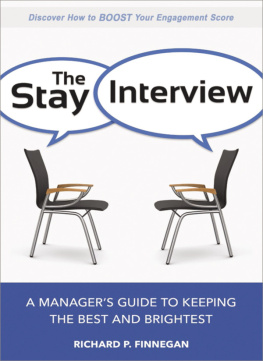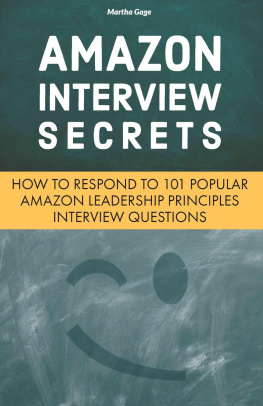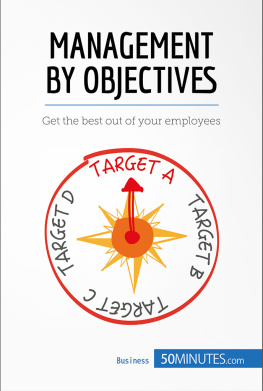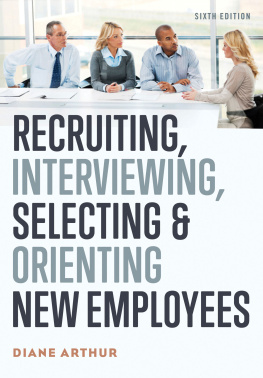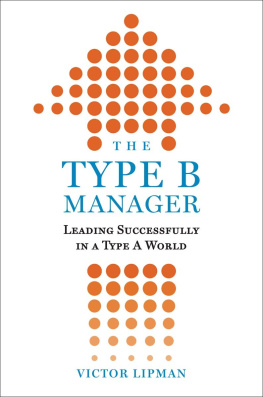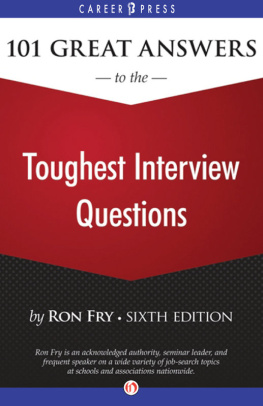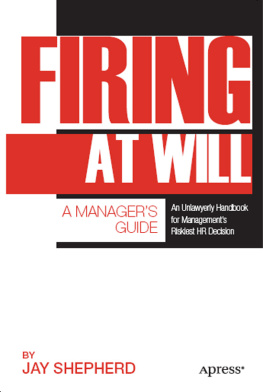501+
Great Interview
Questions for
Employers and
the Best Answers for
Prospective Employees
Dianna Podmoroff
501+ Great Interview Questions for Employers and the Best Answers for Prospective Employees
Atlantic Publishing Group, Inc., Copyright 2005
1210 SW 23rd Place Ocala, Florida 34474
800-814-1132 352-622-5836Fax
www.atlantic-pub.com
SAN Number :268-1250
All rights reserved. No patent liability is assumed with respect to the use of information contained herein. Although every precaution has been taken in the preparation of this book, the publisher and author assume no responsibility for errors or omissions. No warranty is implied. The information is provided on an as is basis.
International Standard Book Number: 0-910627-50-9
Library of Congress Cataloging-in-Publication Data
Podmoroff, Dianna.
501+ great interview questions for employers and the best answers for prospective employees / Dianna Podmoroff.
p. cm.
Includes bibliographical references and index.
ISBN 0-910627-50-9 (alk. paper)
1. Employment interviewing.
2. Employee selection. I. Title.
HF5549.5.I6P63 2005
650.14'4--dc22
2005002846
10 9 8 7 6 5 4 3 2 1
Table of Contents
Introduction
Interviewing potential employees is one of the most difficult and intimidating tasks a manager or business owner will ever face. The task is made even more daunting by the fact that repercussions of a poor hiring decision can haunt the employees, management and the company for a long time to come, and can potentially cost a great deal of money. Discovering how to decrease the risk and maximize the predictive ability of interviews is key to successful hiring.
Were taught that preparedness is the key to dealing with most challenging and stress-inducing situations. When applying for a bank loan or talking to investors or pitching a big sale, we plan and prepare diligently, and the same should be done before interviewing. The problem is that in an interview situation, the interviewee is at least equally as nervous, and usually even more so, than the interviewer. This lethal combination of nervous tension often negates even the most diligent planning and leaves the interviewer with very little information on which to base a solid recommendation.
It is so easy for an interview to become little more than a conversation. Im not suggesting you want the interview to come off as an interrogation either, but what you need is for the information gained from the dialogue to be useful for, and relevant to, making a hiring decision. This means going beyond deciding what questions to ask and actually giving thought to what kind of answers you are looking for. What response will indicate that the candidate is a good fit for the position and your company? Are there responses that are totally incompatible with your organizations goals, mission and values? How will you deal with and evaluate completely unexpected (outrageous or brilliant) answers?
If youve done a good job of pre-selecting candidates for the interview stage, then all of the interviewees should be capable of doing a good job. Choosing which one will do the best job for you is not easy. The person who gives all the right answers often gets the job, but if there is no consideration given to what the right answers for your organization are, then a savvy, well-coached interviewee may be chosen over a less polished but more appropriate one. What this book is designed to do is help you determine the best questions to ask and determine the best answers. Not the best answers from a candidates standpoint (their motivation is simply to get the job), but the best answers for you; satisfying your motivation to hire the person with the best fit, period.
1
Asking the Right
Questions
A successful interview is one that provides unique insight into the ability and willingness of a candidate to do a good job for your company. That means that the interview has to go beyond assessing the technical competence to do the job and get to the real core of the issuedoes the person as a whole suit our company: our culture, our values, our ethics, our personalities? Will the person fit in and become a valuable addition to the workplace by doing excellent work, while at the same time contributing to a healthy work environment?
To uncover the answers to those questions, what you have to assess are the persons core business and professional competencies. By the time a potential employee gets to the interview stage, he or she better have all the technical skills and abilities necessary, otherwise you are wasting your time. The interview is the place to analyze the so-called soft skills that are not easily amenable to testing. The absence or presence of these skills is what leads to the diagnosis of such common job maladies as poor interpersonal skills, an attitude problem, a personality conflict, unable to work in a team, poor communication skills, and problem with authority. Some individuals truly are difficult and hard to get along with, but most, if given the right environment, are very able to adapt and fit into a workplace that is right for them.
Note: Companies are notorious for hiring based on skill and ability, and firing based on fit.
Competency and Fit
Companies are notorious for hiring based on skill and ability, and firing based on fit. Many interviewers make the mistake of equating knowledge, skills and ability (KSA) with competency. In fact, competency is more closely related to an individuals suitability to the workplace than their actual education and experience. If youre hiring for a graphic artist, candidates can be easily eliminated based on their education, experience and portfolio of work. These factors are prerequisites for developing competency, but none of them (alone or in combination) can ensure that the candidate will indeed perform the job at the level you deem suitable. The final component in determining competency is the fit factor, and the best way to evaluate a candidates overall competency is to screen for skill and ability and interview for competency and fit.
In practical terms this means limiting interview questions that are technical in nature and focusing more on questions that reveal a candidates true character. Challenging questions, ones that make the applicant really self-assess, and even a few strategically placed, unexpected questions that throw the candidate off-guard, are the best types of questions for determining overall competency and fit. The interview should not be set up to be an intimidating interrogation, but it needs to be different enough that the even best-coached applicant has to stop and think and give an answer that is not anticipated or rehearsed. Remember, once the hiring decision is made, the interview faade is removed and the new employee with all of his or her innate characteristics, reactions and behaviors is unleashed in your workplace: you owe it to yourself and your current employees to figure out who this person is and what makes him tick before adding him to your team.
Key Competencies
The entire list of competencies for any job will, of course, be different according to the job itself and the level of responsibility. A plumber must have expert plumbing skills whereas a computer programmer does not, but they both need to be able to communicate well and handle stress appropriately. The key competencies presented in this book are a compilation of the most common skills required to be successful on the job. Not every job will need all the competencies but most jobs will require most competencies. The specific areas of competence addressed in this book are:


